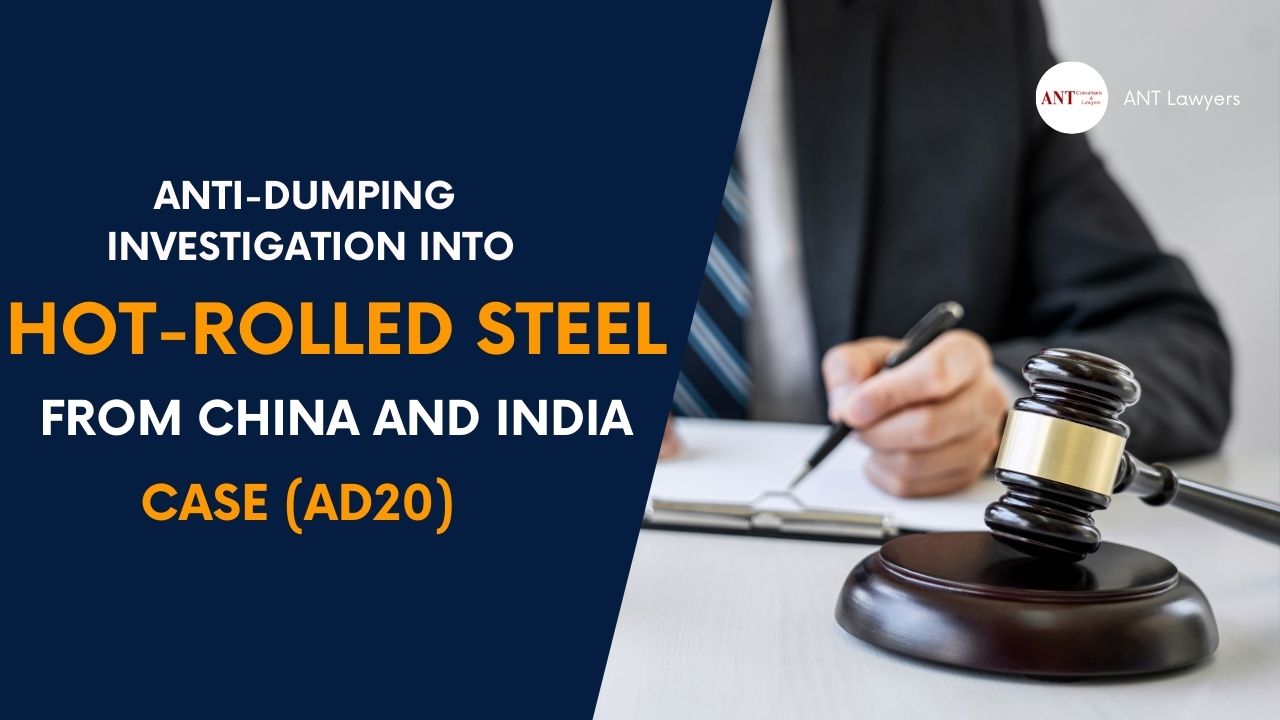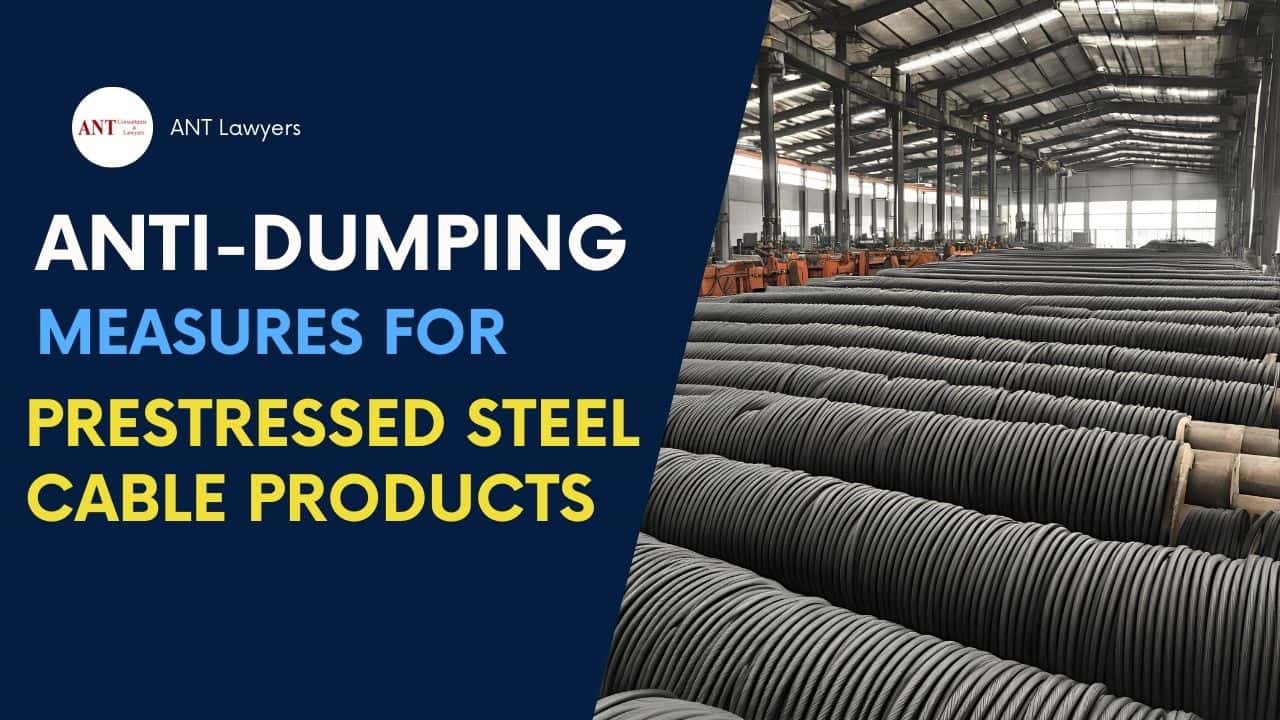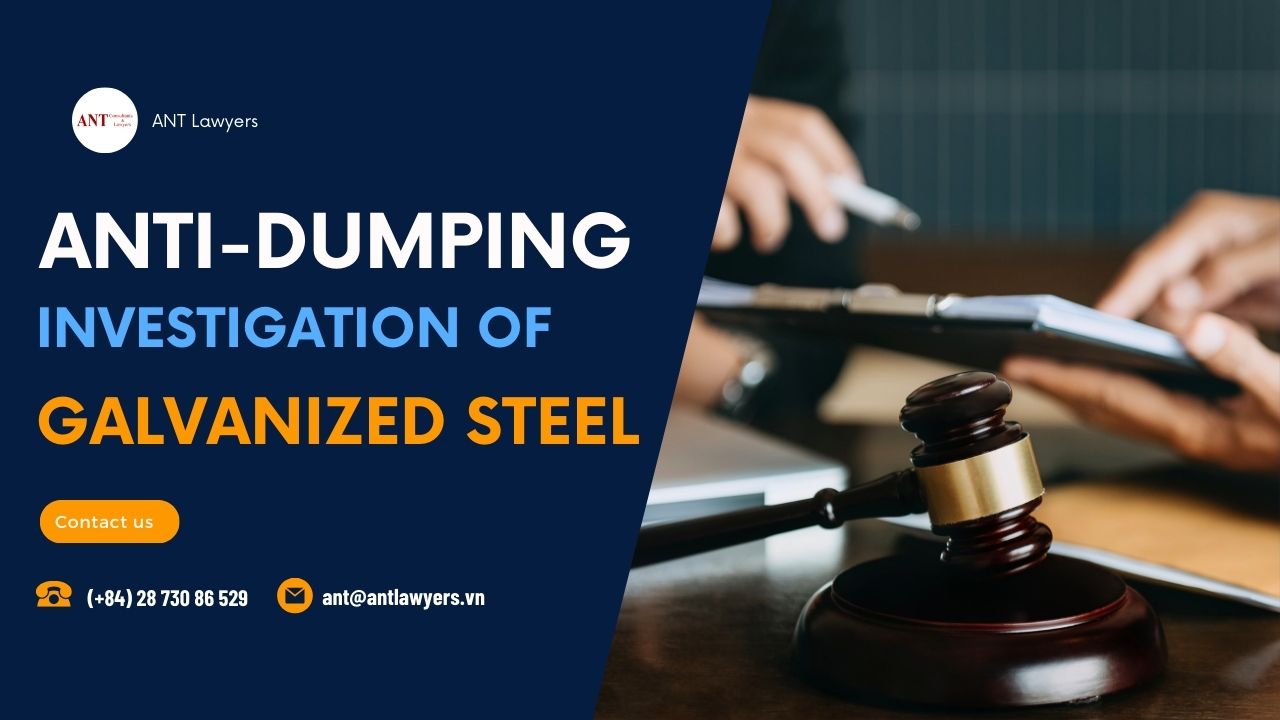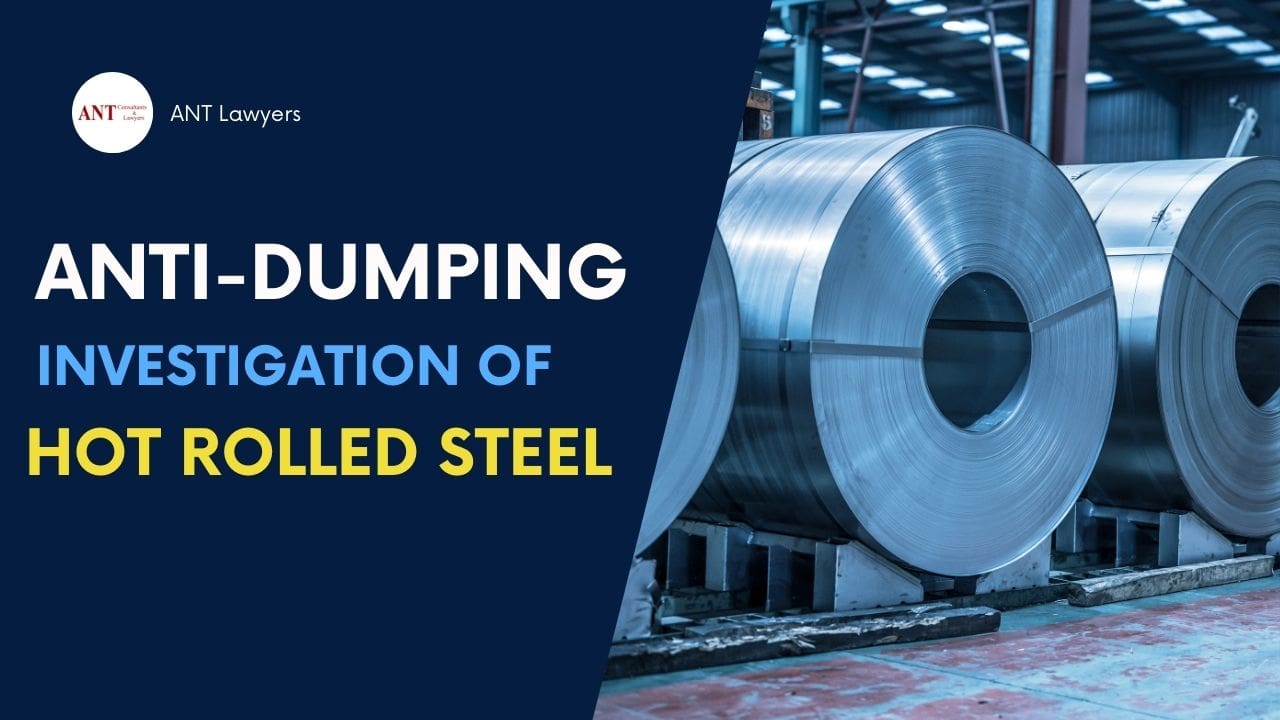Decision of Authority on Anti-Dumping Investigation into Hot-Rolled Steel Imports From China and India
The Vietnam Ministry of Industry and Trade (MOIT) has initiated an anti-dumping investigation into hot-rolled steel imports from China and India. Domestic steel producers have alleged that Chinese and Indian manufacturers are selling hot-rolled steel in Vietnam at prices below their normal value or production cost, causing substantial injury to the domestic steel industry.

On July 26, 2024, the Ministry of Industry and Trade (MOIT) issued Decree No. 1985/QD-BCT to formally commence the anti-dumping investigation into hot-rolled steel imports from China and India.
The investigating authority will collect and verify data from July 1, 2023, to June 30, 2024, to assess the dumping margin, and from July 1, 2021, to June 30, 2024, to evaluate the injury to the domestic industry.
The investigating authority will issue questionnaires to all interested parties to gather information for analyzing and assessing the extent of dumping, the injury to the domestic hot-rolled steel industry, and the causal link between the dumping and the injury.
Finally, the investigating authority will hold a public hearing to allow all interested parties to exchange information, provide input, and express their views on the matter before reaching a final determination.
In accordance with the Foreign Trade Law, the anti-dumping investigation into hot-rolled steel imports from China and India must be completed within 12 months from the date of the initiation decision. In exceptional circumstances, this period may be extended, but the total investigation period shall not exceed 18 months.
Understanding the Anti-Dumping Investigation Process
Overview of Anti-Dumping Investigations
Anti-dumping investigations are critical tools used by governments to protect domestic industries from unfair trade practices. The primary goal is to determine whether imported goods are being sold at less than their fair value and causing material injury to the domestic industry. The process typically involves several key steps:
1.Filing of Complaint: Domestic producers file a complaint with the relevant authorities, alleging dumping and providing evidence of injury.
2.Initiation of Investigation: The authority reviews the complaint and, if it finds sufficient evidence, formally initiates an investigation.
3.Data Collection and Analysis: The authority collects data from various sources, including questionnaires sent to foreign exporters, domestic producers, and importers.
4.Preliminary Determination: An initial determination is made based on the collected data, which may result in provisional anti-dumping duties.
5.Verification and Final Determination: Further verification of the data and a final determination are made, leading to the imposition of definitive anti-dumping duties if necessary.
6.Public Hearings: Interested parties are allowed to present their views and arguments in a public forum.
Key Information and Compliance
During the investigation, the authority will look for the following information:
- Normal Value and Export Price: Comparison between the normal value (price in the exporter’s domestic market) and the export price to determine the dumping margin.
- Cost of Production: Detailed cost data to assess whether the export price is below the cost of production.
- Injury to Domestic Industry: Evidence showing that the domestic industry is suffering material injury due to dumped imports.
- Causal Link: A clear connection between the dumping and the injury experienced by the domestic industry.
Cooperate and Seek Expert Guidance
It is crucial for companies involved in anti-dumping investigations to fully cooperate with the investigating authority. Providing accurate and complete information in a timely manner can significantly impact the outcome of the investigation. Companies should also consider seeking the assistance of anti-dumping law firms in Vietnam. These firms can offer expert advice and representation throughout the process, ensuring that the companies’ interests are adequately protected.
About ANT Lawyers, a Law Firm in Vietnam
We help clients overcome cultural barriers and achieve their strategic and financial outcomes, while ensuring the best interest rate protection, risk mitigation and regulatory compliance. ANT lawyers has lawyers in Ho Chi Minh city, Hanoi, and Danang, and will help customers in doing business in Vietnam.
How ANT Lawyers Could Help Your Business?
You could learn more about ANT Lawyers International Trade and Tax or contact our International trade dispute lawyers in Vietnam for advice via email ant@antlawyers.vn or call our office at (+84) 24 730 86 529



